11 ‘Healthy’ Foods That Can Make You Gain Weight
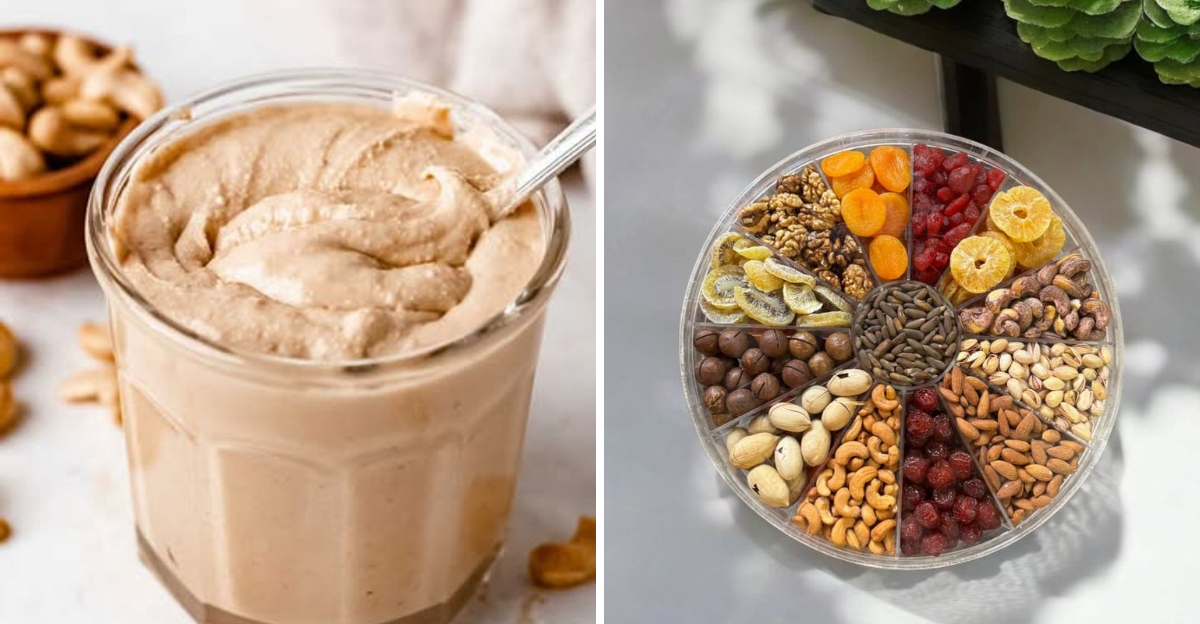
Many foods labeled as ‘healthy’ can surprisingly contribute to weight gain when consumed in large quantities. These foods may be nutrient-rich, but their high-calorie content can lead to unwanted pounds. Our list highlights some of these foods, helping you make informed choices without compromising on nutrition.
1. Granola
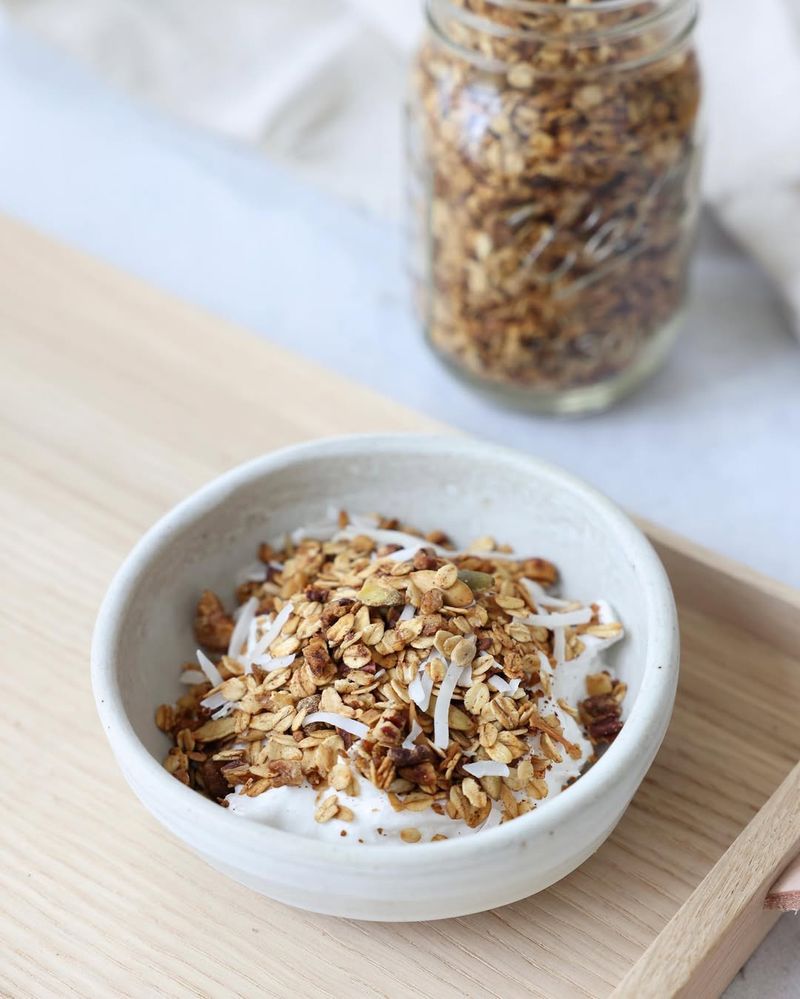
Granola is often hailed as a healthy breakfast option, packed with oats, nuts, and seeds. However, it’s also calorie-dense, largely due to added sugars and oils. A typical serving can easily exceed 200 calories. When combined with yogurt or milk, the calorie count can further soar. Watching portion sizes is crucial, as it’s easy to consume more than intended. Opting for a version with no added sugars and minimal oil can help. Offering a hearty start to the day, granola should be enjoyed with awareness of its potential impact on weight.
2. Avocado

Avocados are renowned for their healthy fats and creamy texture. While beneficial for heart health, they are also calorie-dense. A single avocado can contain over 200 calories, making moderation key. Incorporating avocados into salads or on toast adds flavor but can also increase caloric intake significantly. It’s easy to overlook these calories when aiming for a nutritious meal. Consider using avocado as a substitute for other high-fat spreads while keeping portion sizes in check to avoid unintended weight gain.
3. Smoothies
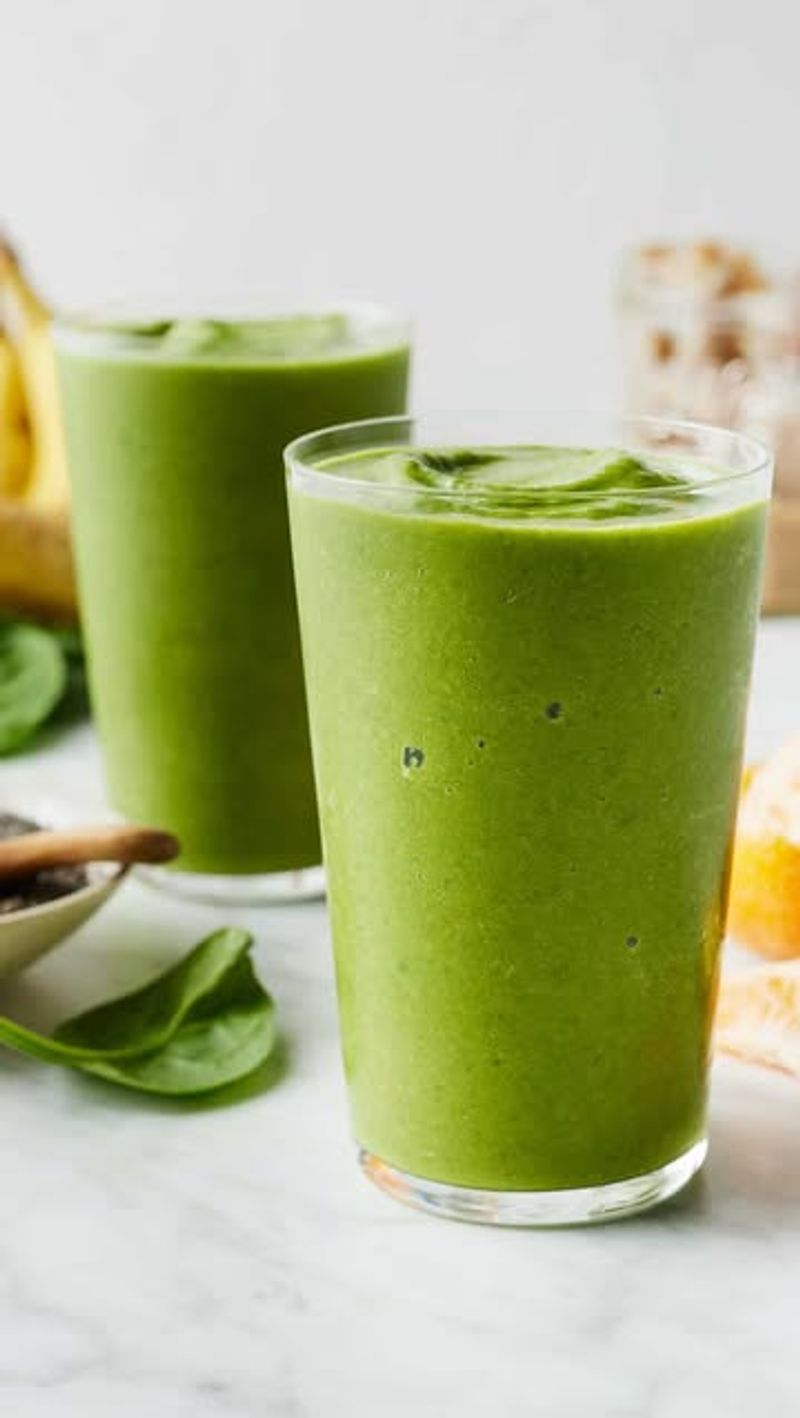
Smoothies are a popular way to consume fruits and vegetables efficiently. However, store-bought versions often contain added sugars or sweetened yogurts. This transforms a seemingly healthy snack into a calorie-laden drink. Even homemade smoothies can be deceptive, as adding too much fruit or sweeteners elevates the sugar content. To maintain a balanced diet, prefer smoothies with minimal added sugars and focus on whole fruits and vegetables. This ensures you’re getting the nutrients you need without extra calories.
4. Trail Mix
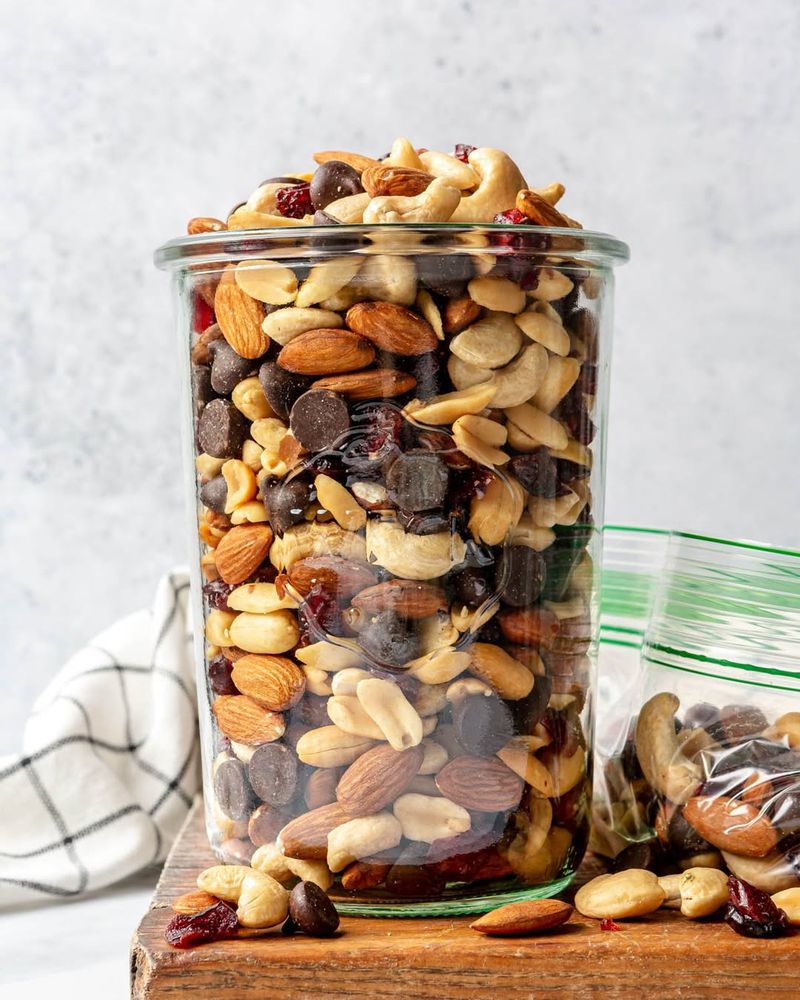
Trail mix is a convenient snack for its blend of nuts, seeds, and dried fruits. While nutritious, it’s also calorie-rich. A small handful can contain upwards of 300 calories, especially if it includes chocolate or yogurt-covered treats. The combination of fats from nuts and sugars from dried fruits can quickly add to daily caloric intake. Choosing trail mix without added sugars and monitoring portion sizes helps keep this snack in line with dietary goals, allowing enjoyment without excess weight gain.
5. Flavored Yogurt
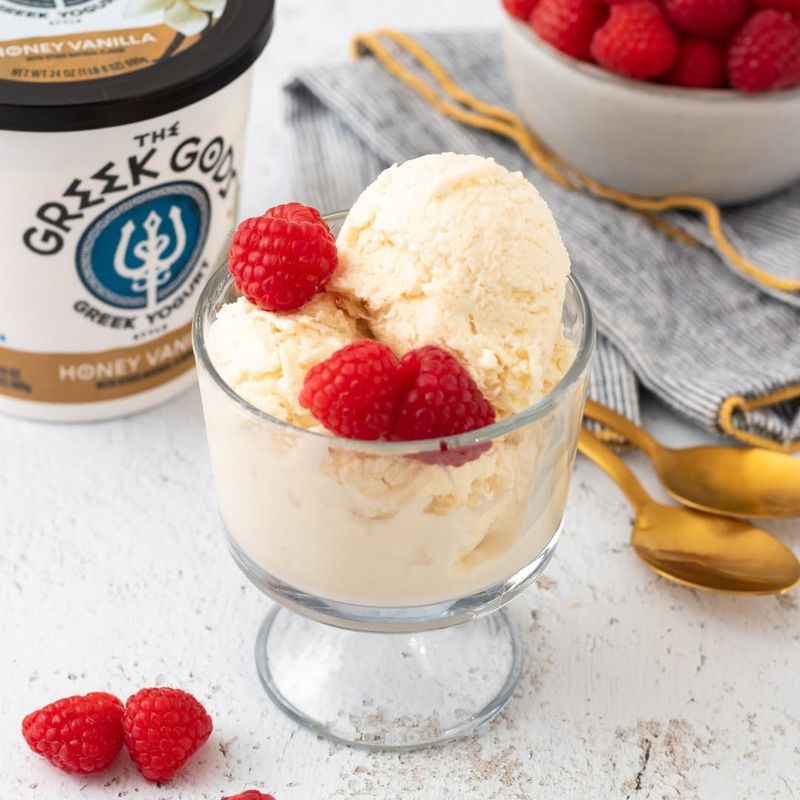
Flavored yogurts are appealing for their taste and source of probiotics. Yet, they often contain added sugars, increasing caloric content significantly. A single serving can include more than 20 grams of sugar. Opting for plain yogurt and adding fresh fruit allows control over sugar intake. This change helps maintain a balanced diet without the hidden calories. Understanding label ingredients can guide healthier choices, making yogurt a beneficial part of meals without contributing to weight gain.
6. Energy Bars
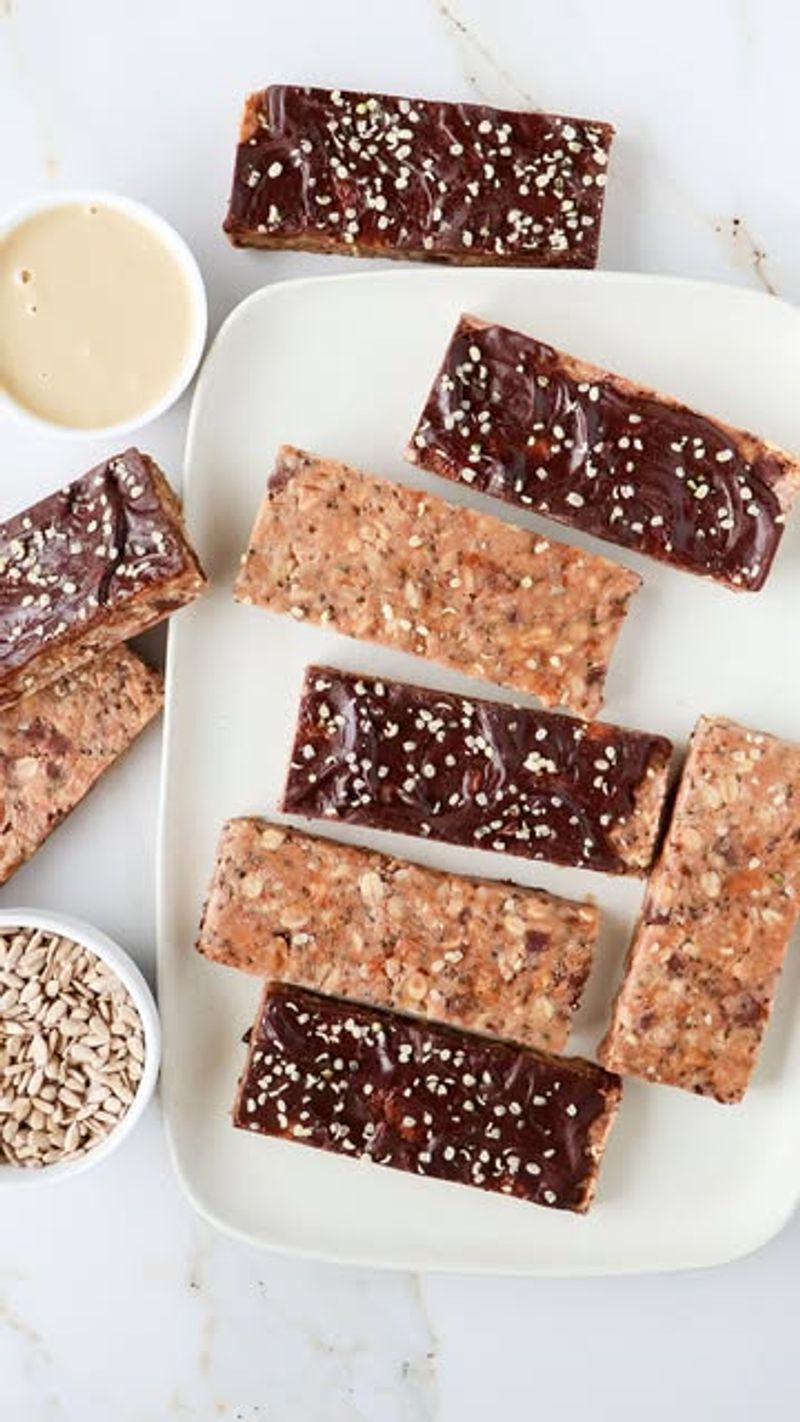
Energy bars are marketed as convenient on-the-go snacks. Despite their protein and fiber content, many contain added sugars or artificial ingredients. A single bar can easily exceed 250 calories. Consuming them as meal replacements without accounting for their caloric content leads to unintentional weight gain. Choosing bars with natural ingredients and minimal sugars ensures that they serve as a nutritious snack rather than a calorie bomb. These bars should complement, not replace, a balanced diet.
7. Nut Butters
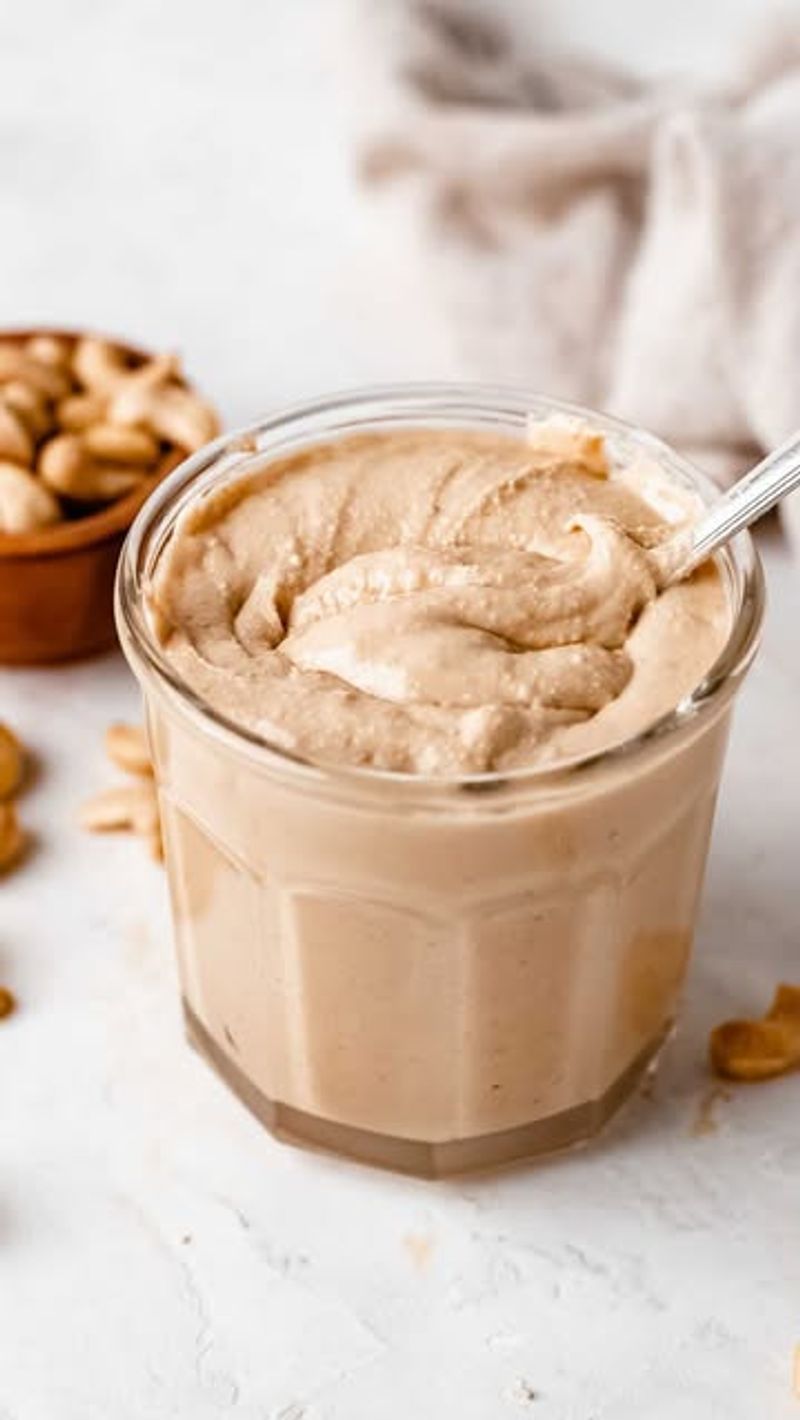
Nut butters, like almond or peanut, offer healthy fats and protein. However, they are calorie-dense, with two tablespoons containing nearly 200 calories. Used generously on bread or in smoothies, these calories add up quickly. Opting for nut butters without added sugars and portion control is crucial. Spreading nut butter thinly can help enjoy its benefits without the risk of gaining weight, making it an excellent, yet mindful, addition to meals.
8. Coconut Oil
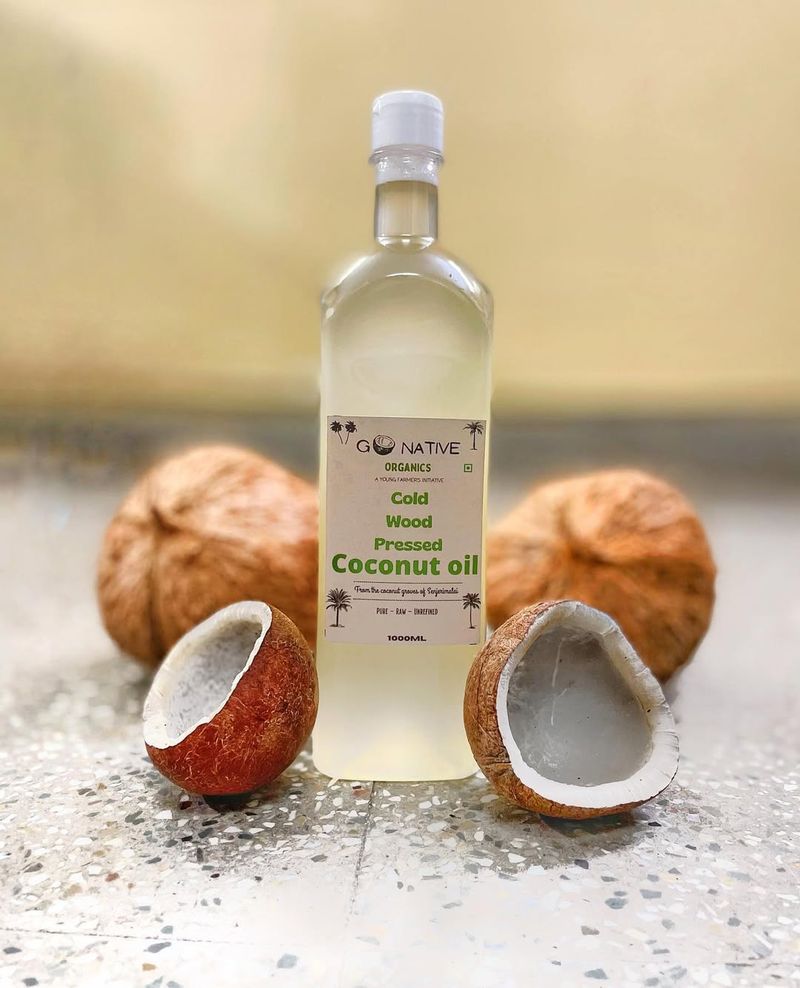
Coconut oil is praised for its medium-chain triglycerides, believed to support metabolism. Despite these benefits, it’s high in saturated fats, with a tablespoon containing about 120 calories. Incorporating coconut oil into cooking or baking should be done sparingly. Excessive use can negate its health benefits by adding unnecessary calories. Using it in moderation and as part of a balanced diet ensures it enhances rather than hinders weight management goals.
9. Dried Fruits

Dried fruits are convenient for their nutrient density and long shelf life. However, the drying process concentrates sugars, making them calorie-heavy. A small portion can quickly surpass the calories of fresh fruit. Often consumed as snacks, they’re easy to eat in larger quantities than intended. Balancing dried fruit with fresh options and monitoring portion sizes prevents excessive caloric intake. They should complement a diet, providing variety without causing weight gain.
10. Whole Grain Bread
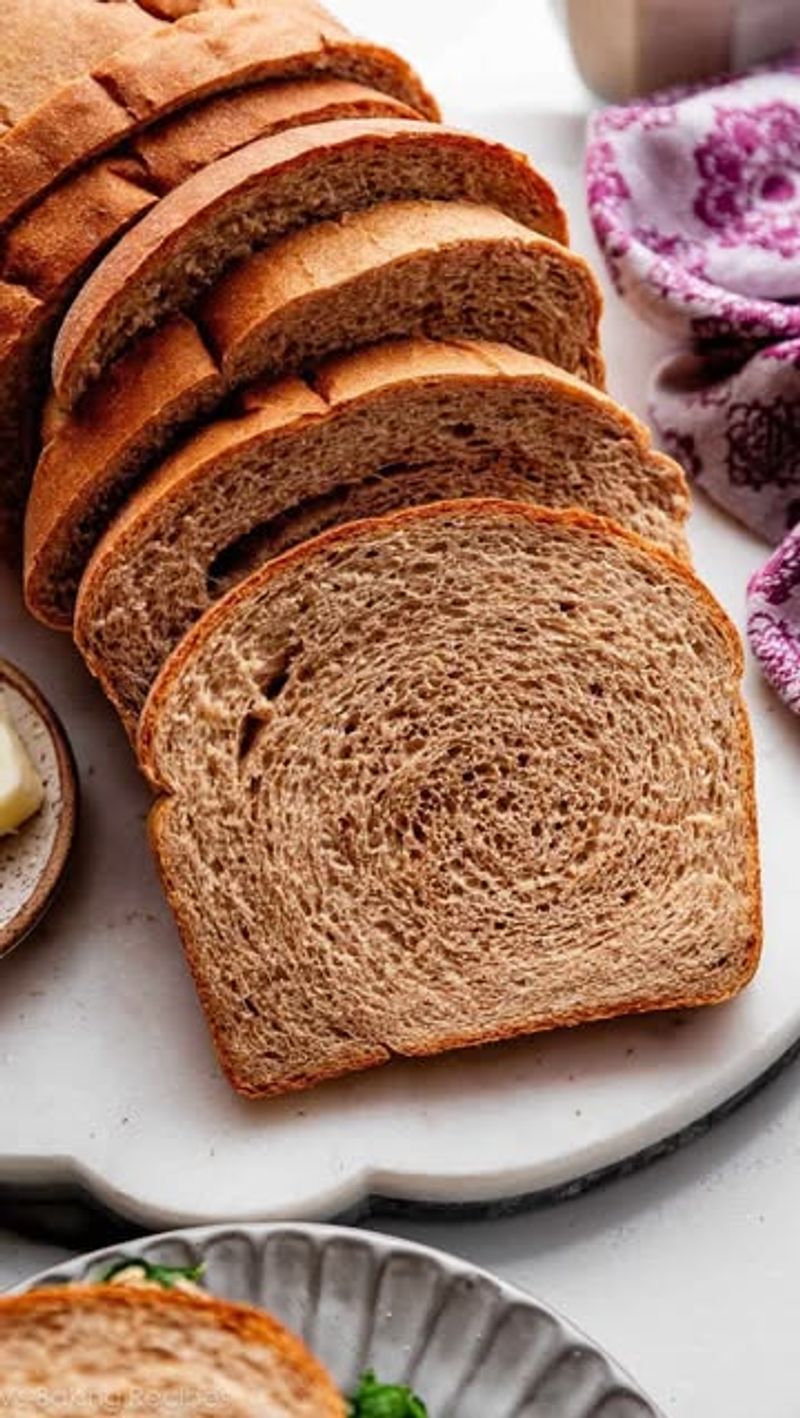
Whole grain bread is celebrated for its fiber content and heart-health benefits. Yet, it can still contribute to weight gain if consumed in large amounts. Each slice can have over 100 calories. Pairing bread with high-calorie spreads or eating multiple servings increases the risk of gaining weight. Choosing smaller servings and pairing with nutrient-rich toppings can provide a balanced approach to enjoying this staple food. Awareness of portion sizes ensures it remains a healthy choice without leading to weight gain.
11. Gluten-Free Snacks

Gluten-free snacks cater to those with dietary restrictions, but they are not inherently low in calories or healthier. Many snacks are processed and high in sugars and fats. Relying on gluten-free labels can lead to overconsumption, mistakenly believing they’re a healthier option. Reading labels and choosing whole, unprocessed snacks can help avoid excess calories. Incorporating them into a diet mindfully ensures they support rather than sabotage health goals.
